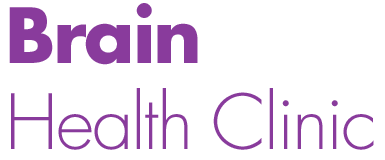
A Fancy Term for Brain Fog?
Living in Sacramento, we all know what it’s like to deal with fog. The veil of cloud at ground level limits your sensory perception. You feel unclear about what’s around you. Taking action, whether on foot or while driving, seems difficult due to uncertainty. Cognitive fogginess, brain fog, or cognitive impairment create a similar sensation when you are trying to do any of the following activities, but without success:
- Recalling facts, figures, or numbers,
- Multitasking,
- Responding to a question,
- Meditating on a specific thought or concept,
- Following a discussion,
- Learning something new.
If you feel frustrated when handling these sorts of ordinary, everyday events, you may be dealing with cognitive impairment. The Brain Health Clinic has a solution for you with neurofeedback therapy.
First Steps with Cognitive Fogginess
Since brain fog can result from any number of events or circumstances (drug side effects, hangovers, and fatigue are just a few), it’s important to nail down whether any pharmaceutical, behavioral, or biological causes are involved that can be altered or treated. In some cases, cognitive impairment is a result of an illness, such as infection with COVID-19. It has been observed that elevated levels of inflammation and an overactive immune system (perhaps as an after response to infection) are often connected with cognitive fogginess.
After it is confirmed that any avoidable causes of cognitive impairment are eliminated, neurofeedback becomes a therapy of choice to help resolve the symptoms of brain fog. The following is not an exhaustive list of situations that may benefit from neurofeedback, but it does list some situations where neurofeedback therapy may be warranted:
- Depression and Anxiety — Clients with clinical depression or anxiety, or even people suffering from chronic stress without a diagnosis of depression or anxiety, can benefit from neurofeedback therapy for brain fog. In all three situations, the body is constantly releasing hormones as part of the “flight or fight” response. These potent chemical messengers can interrupt ordinary brain processes. Neurofeedback can help calm these biological reactions.
- Chronic Fatigue Syndrome — Patients with this syndrome often feel excessively fatigued. Turning their attention to a task for any extended period of time can be difficult. Neurofeedback can help restore the ability to focus.
- Long COVID — The entire world is in a new stage as a result of the pandemic. The aftereffects of a coronavirus infection may include cognitive impairment. Psychology Today writes that “the brain is plastic, so by practicing exercises that focus and stretch the mind, we often see amazing results.” Neurofeedback therapy does just that — it promotes focus and it definitely stretches the mind to naturally seek self-improvement.
For more information about neurofeedback therapy and to find out whether or not it may be a solution for your cognitive fogginess, contact the Brain Health Clinic by phone or online. We are here to help your brain feel brilliant!
